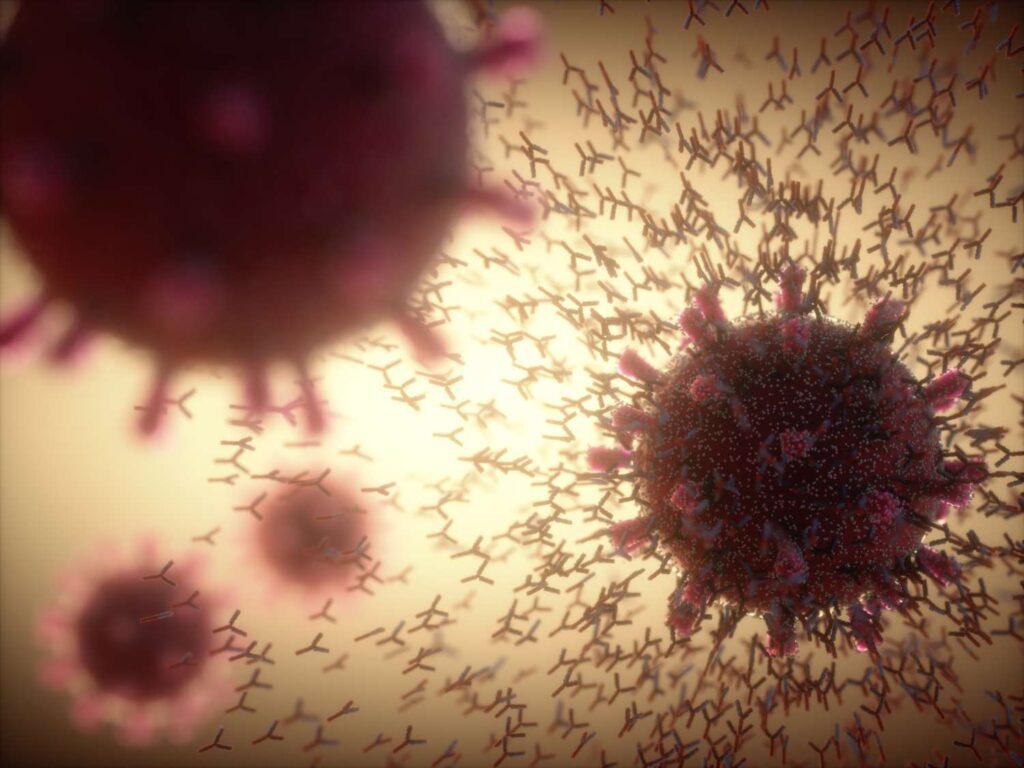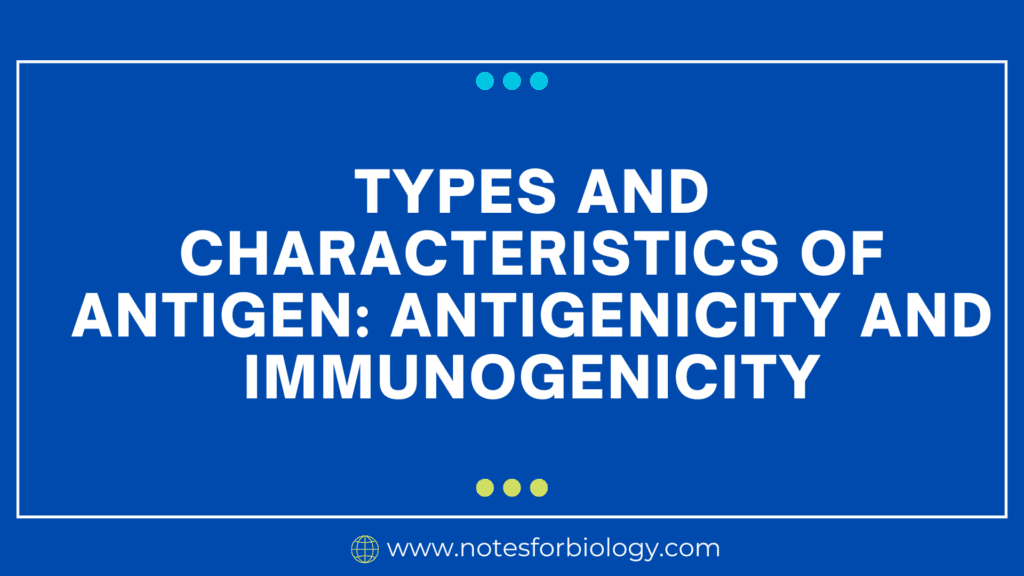What is Antigens ?

Antigens are molecules that can trigger an immune response in the body. They are typically large, complex molecules with unique shapes and chemical properties. Understanding the different types and characteristics of antigen is crucial in understanding the immune system’s response to foreign invaders.
Table of Contents
Two key properties that define antigen
Antigenicity: The ability of an antigen to bind to specific receptors on immune cells, such as lymphocytes. This binding is crucial for initiating an immune response.
Immunogenicity: The ability of an antigen to induce an immune response, leading to the production of antibodies or the activation of immune cells.
Types of Antigen
Exogenous Antigens: Originate from outside the body, like bacteria, viruses, fungi, parasites, and toxins. They enter the body through various routes like inhalation, ingestion, or injection.
Endogenous Antigens: Originate within the body, usually from infected cells or cancerous cells. These antigen are expressed on the cell surface and recognized by the immune system.
Autoantigens: Normally present within the body, but the immune system mistakenly identifies them as foreign. This leads to autoimmune diseases.
Characteristics of Antigens
Foreignness: The antigen must be foreign to the body for the immune system to recognize it as a threat.
Size: Generally, larger molecules are more antigenic than smaller ones.
Chemical Complexity: Complex molecules with diverse chemical structures are more antigenic.
Degradability: Antigen need to be processed and presented to the immune system. Easily degradable molecules are more effective.
Antigenicity and Immunogenicity
Antigenicity: Refers to the ability of an antigen to bind to an antibody or T cell receptor. It describes the antigen’s capacity to be recognized by the immune system.

Immunogenicity: Refers to the ability of an antigen to elicit an immune response, specifically the production of antibodies or activation of T cells.

Key Differences
Antigenicity is a broader concept, implying recognition by immune cells.
Immunogenicity is a specific characteristic, meaning the ability to induce an immune response.
Factors Affecting Immunogenicity
Dose and Route of Administration: Higher doses and appropriate routes (e.g., subcutaneous injection) enhance immunogenicity.
Chemical Composition: Complex molecules with diverse structures are better immunogens.
Adjuvants: Substances that enhance the immune response to an antigen by promoting antigen uptake and presentation.
Genetic Background: Individual variations in immune system components can influence immunogenicity.
Host Factors: Factors like age, nutrition, and overall health can affect the immune response.
Examples
Exogenous antigen: The protein coat of the influenza virus
Endogenous antigen: Tumor-associated antigen expressed on cancer cells
Autoantigen: Myelin basic protein in multiple sclerosis
Applications
Understanding antigenand their characteristics is crucial for developing vaccines, treatments for autoimmune diseases, and diagnosing infections.
Vaccine Development
Designing Effective Vaccines: Vaccines work by introducing antigen into the body to trigger an immune response. Understanding antigenicity allows scientists to select optimal antigen that induce strong immune responses, leading to effective vaccines.
Diagnosis and Disease Monitoring
Diagnostic Tests: Antigenic properties are exploited in various diagnostic tests to detect the presence of specific pathogens or disease markers. Examples include:
ELISA: Enzyme-linked immunosorbent assay uses antibodies to detect antigen in patient samples.
Lateral Flow Assays: These rapid tests rely on antigen-antibody interactions for visual detection.
Therapeutic Applications
Immune Therapy
Harnessing the immune system to fight diseases is a major focus in medicine. Understanding immunogenicity and antigenicity allows for:
Antibody-Based Therapies: Monoclonal antibodies are engineered antibodies that target specific antigen, leading to targeted therapies for cancer, autoimmune diseases, and other conditions.
Cell Therapies: Immune cells like T cells can be engineered to express specific receptors that recognize tumor antigen, enabling targeted cancer immunotherapy.
Allergy Treatment
Understanding antigenicity is crucial in allergy management, allowing for the development of:
Desensitization Therapies: Exposure to gradually increasing doses of allergens can re-educate the immune system to tolerate the antigen.
Targeted Therapies: Developing therapies that block the interaction of allergens with immune cells can prevent allergic reactions.
Biotechnology and Research
Antibody Production: Antigenicity is essential for producing antibodies for research and therapeutic purposes. Understanding antigenicity allows researchers to select appropriate antigen for immunization, generating specific antibodies.
Drug Discovery and Development: Knowledge of antigenicity and immunogenicity helps identify potential drug targets and develop safe and effective immunotherapies.
In summary
Antigen are molecules that trigger immune responses. Antigenicity refers to the ability to bind to immune receptors, while immunogenicity refers to the ability to induce an immune response. Recognizing and understanding the characteristics of antigen is crucial for various applications in medicine and immunology.
Freqently Asked Questions(FAQ)
What is Antigens ?
Antigens are molecules that can trigger an immune response in the body. They are typically large, complex molecules with unique shapes and chemical properties. Understanding the different types and characteristics of antigen is crucial in understanding the immune system’s response to foreign invaders.
What are the treatment for Allergy ?
The treatment for allergy
Desensitization Therapies: Exposure to gradually increasing doses of allergens can re-educate the immune system to tolerate the antigen.
Targeted Therapies: Developing therapies that block the interaction of allergens with immune cells can prevent allergic reactions.
What are the application of Antigen?
The application of Antigen are,
Vaccine Development
Diagnosis and Disease Monitoring
Therapeutic Applications
Related Articles

